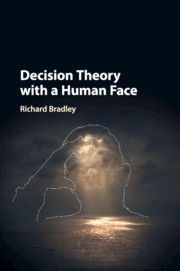Book contents
- Frontmatter
- Dedication
- Contents
- List of Figures
- List of Tables
- Preface
- Introduction
- PART I RATIONALITY, UNCERTAINTY AND CHOICE
- 1 Decision Problems
- 2 Rationality
- 3 Uncertainty
- 4 Justifying Bayesianism
- PART II PROSPECTIVE RATIONALITY
- PART III FACING THE WORLD
- PART IV RATIONALITY WITHIN BOUNDS
- Appendix: Proofs
- Bibliography
- Index
3 - Uncertainty
from PART I - RATIONALITY, UNCERTAINTY AND CHOICE
Published online by Cambridge University Press: 11 October 2017
- Frontmatter
- Dedication
- Contents
- List of Figures
- List of Tables
- Preface
- Introduction
- PART I RATIONALITY, UNCERTAINTY AND CHOICE
- 1 Decision Problems
- 2 Rationality
- 3 Uncertainty
- 4 Justifying Bayesianism
- PART II PROSPECTIVE RATIONALITY
- PART III FACING THE WORLD
- PART IV RATIONALITY WITHIN BOUNDS
- Appendix: Proofs
- Bibliography
- Index
Summary
Uncertainty is a pervasive feature of human life and almost all our decisions must be made without certainty about what the consequences of our actions will be for ourselves or others. Human attitudes such as hope, fear and even regret depend on it. Despite this, philosophy has given little attention to uncertainty, largely treating it as just lack of certainty (apparently the real interest). In both the mathematical and empirical sciences, on the other hand, the emphasis has been on the development of techniques to manage it. So central has the concept of probability been to this enterprise that it has come to seem as if uncertainty was nothing other than the flipside of probability.
The concept of probability emerged surprisingly late in human history, in the seventeenth-century work of Blaise Pascal and Pierre de Fermat.1 In this work, and much that followed, probability was conceived both in terms of the stochastic properties of chance processes, such as dice rolls and card deals, and the properties of beliefs about events regarding which full knowledge was lacking. In time this hardened into a distinction between two different forms of uncertainty: objective or aleatory uncertainty, which derives from features of the world (indeterminacy, randomness), and subjective or epistemic uncertainty, which derives from lack of information about it. In modern decision theory, there is a dominant theory of how each form of uncertainty should be quantified (in both cases, by a probability measure) and of how, so quantified, it should weigh in the evaluation of actions. For situations of objective uncertainty (or risk, as it typically called) decision theorists look to the version of expected utility theory originally due to von Neumann & Morgenstern (2007/1944), while for those characterised by epistemic uncertainty they look to subjective expected utility theory, whose classic statement is to be found in the work of Leonard Savage (1974/1954).
This distinction between risk and epistemic uncertainty, important and useful though it may be, does not remotely do justice to the variety of forms and degrees of uncertainty relevant to decision making.
- Type
- Chapter
- Information
- Decision Theory with a Human Face , pp. 31 - 40Publisher: Cambridge University PressPrint publication year: 2017



